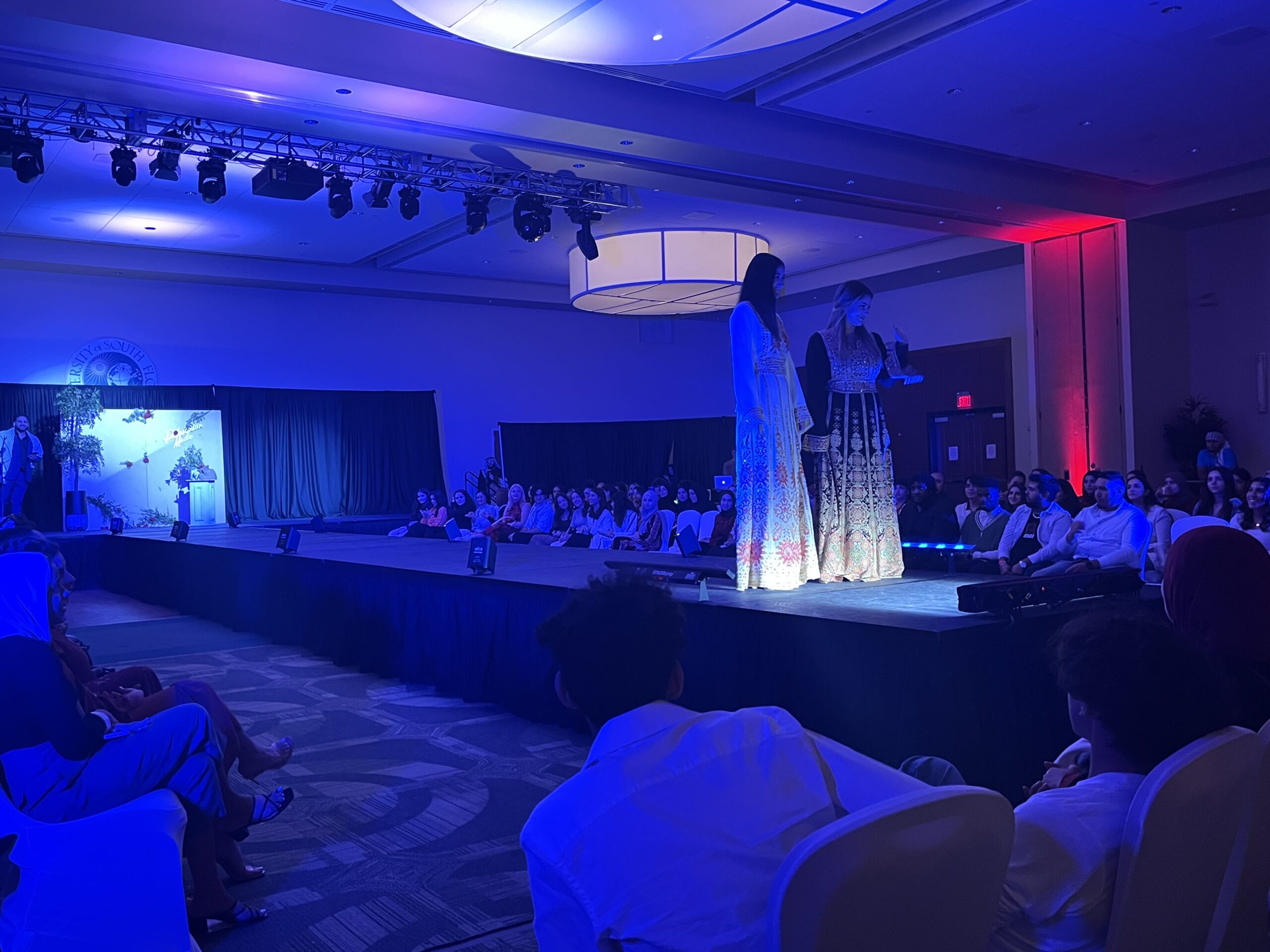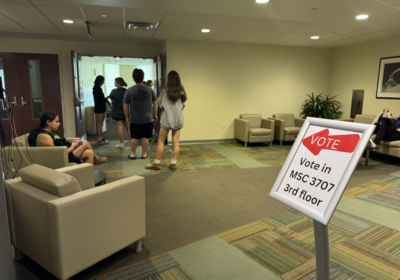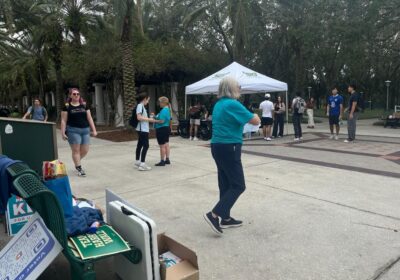Students for Justice in Palestine hosts first fashion event

The Student for Justice in Palestine (SJP) organization hosted Monday its first fashion, art and music show, “Threads of Palestinian Identity,” to celebrate Palestinian culture.
Hosted in the Marshall Student Center Ballroom in front of 270 attendees, the event was created to highlight both traditional clothing and the modernization of streetwear in Palestine. SJP President Leali Shalabi said the importance of this event goes beyond celebrating their culture.
“Of course, we want events like this that are celebratory,” Shalabi said. “We celebrate our life in our art and in our culture, but this comes with years of survival. This has been happening since 1948.”
Shalabi said Palestine has been under conflict and considered “stateless” for almost a decade due to the Israeli emergence and claim in the Gaza Strip oil mining. The first part of the fashion show was dedicated to hand-sowed Thoves, Palestinian traditional gowns, to highlight the resistance, she said.
“These were all our personal ones, our mothers and grandmothers,” Shalabi said. “The hand stitched ones last generations because it is so much better than what machines can develop.”
By setting up a runway in the middle of the ballroom, and providing a long table of appetizers, traditional pastries and mocktails, SJP accommodated several attendees and their families by giving them a piece of home at USF.
Still wanting to showcase the modernization and evolution of Palestinian fashion, the show also included machine-sewn traditional wear and streetwear, modeled by both men and women. The father and daughter designer duo Samer and Bella Fidy, owners of the “Palestinian Hustle” brand, aim to change the narrative on Palestine in the U.S.
“While growing up, when someone would ask ‘Hey, where are you from?’ and I would say ‘I’m Palestinian,’ their face would change,” Samer said. “You apparently live in war, and it’s always connected to something negative.”
Fidy wants to ensure people in Western culture to focus more on the beauty of Palestinian culture and the unity of their people.
Omar Herzalla, a business analytics major, said the important part of events like the fashion show comes from informing others.
“I just think there is a lot of misinformation, especially when it comes to middle eastern culture,” Herzalla said. “When it comes to the news and everything in school, this helps spread awareness.”
Gathering Palestinian students and their families with traditional food and music, that was often remixed with a more modern beat, the event focused on displaying how fashion inspires the spread of the resistance movement.
Junior animation major Ayat Hasan said they see Palestinian influences even in Western fashion, while rarely getting credit.
“I have been seeing a lot of it being butchered and integrated in modern-day fashion,” Hasan said. “This organization helps bring awareness to Palestine and Palestinian-owned small businesses.”
With an emphasis on how the culture is viewed from outside the Palestinean community, SJP chose to highlight up-and-coming TikTok artist Saint Levant, who brings awareness to Palestine conflicts through rap lyrics both in English and Arabic. Even with the performance running short due to technical difficulties, the artist managed to get the crowd out of their seats.
USF alum Nadene Hijaz said censorship in Palestine can prevent accurate representation from reaching the rest of the world. Hijaz said artists like Saint Levant that have a platform outside of Palestine are important to the resistance movement.
“I think we are really bringing awareness for the people back at home,” Hijaz said. “With being war torn and with all the media censors, these events need to be hosted so the word can get out there.”







